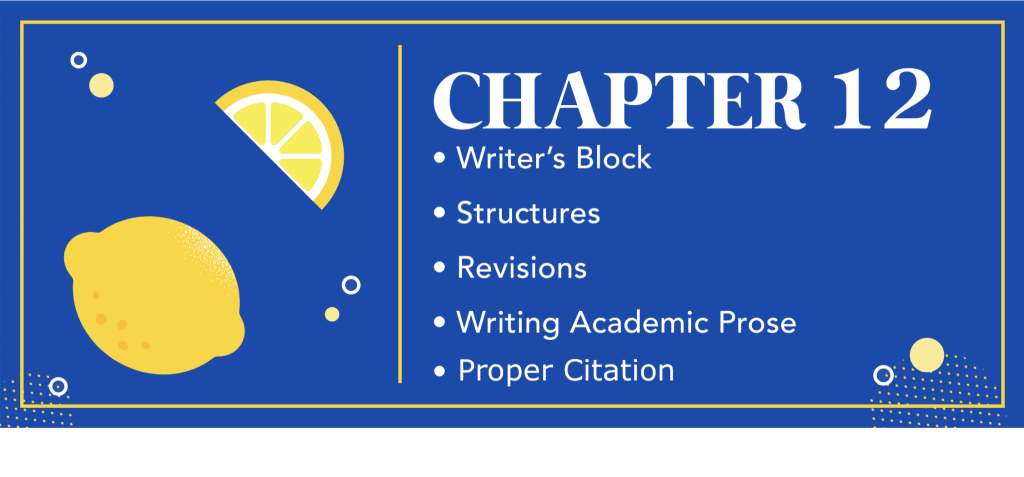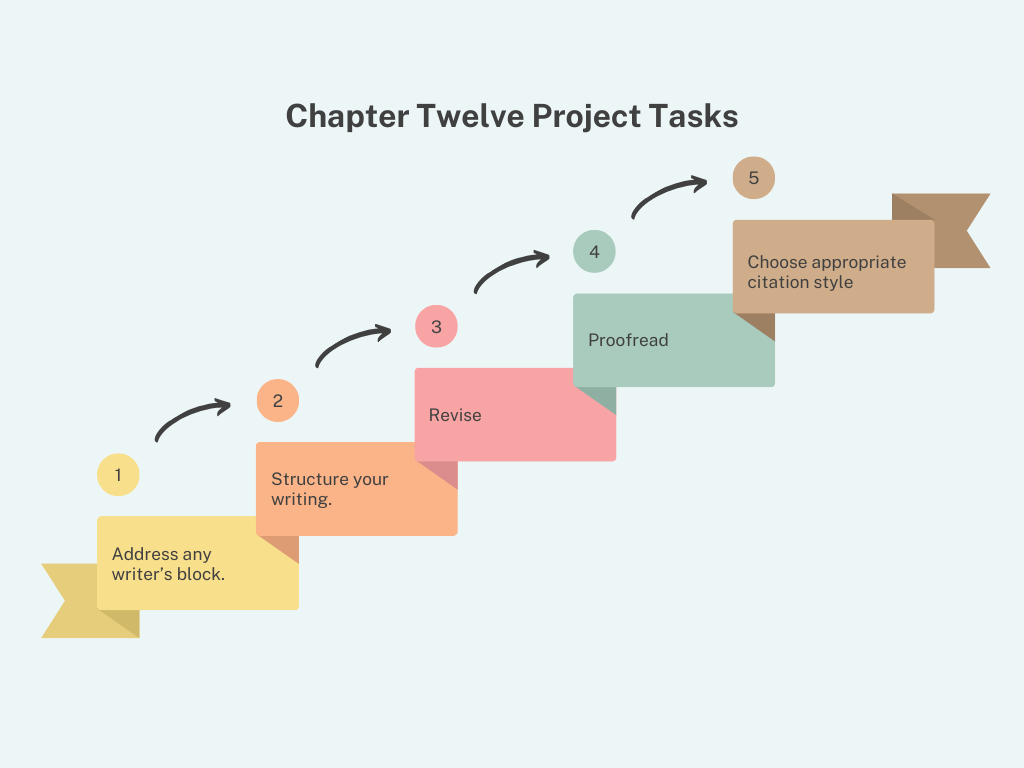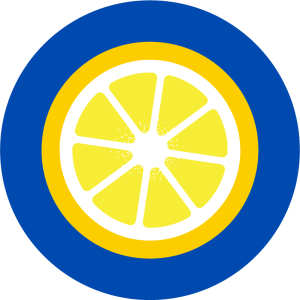Chapter 12 Objectives
Barry Mauer and John Venecek

Objectives
Once you have synthesized your research materials and are ready to address your audience with a clear purpose in mind, you should start the process of putting your research in a presentable form. We start this chapter with a page on “Writer’s Block,” a common affliction to writers. We argue that writer’s block can be a productive period because working through the blocks prepares us to solve problems and become stronger writers. “Structures” are there to help writers organize their ideas, which will help readers to follow them.
“Revision” is when you review your writing to see whether it meets your objectives. Since virtually no one can write a successful research paper in one draft, writers go through the process of revision (usually through multiple drafts) until they are satisfied they have met their objectives. Your objectives are to join the scholarly conversation, have a clear purpose, a compelling case, and a research project that rewards your audience for their attention. As a student, you also need to meet the requirements of the assignment you’ve been given. Professional writers often give themselves assignments, which can mean they write for publications.
We discuss revisions in terms of content and form. In practice, content and form are inseparable. If your ideas (content) are not intelligible in your writing (form), your audience will not be able to engage with your ideas. You have to know what to say and the best way to say it.
The tasks for this chapter take us through the major writing portions of the research project. They are built upon all the tasks we’ve done to this point. Make sure to consult your earlier work and build on it during these tasks.

 Learning Objectives
Learning Objectives
Revision is where you make major changes to your ideas and the form in which they are expressed. It often involves rewriting whole sections, moving sentences and paragraphs around, and making sure all transitions are clear and logical. Writing guidelines are meant to help make your writing accessible and clear for readers. From the following pages you will learn how to:
- contribute to the scholarly conversation.
- convince your reader to adopt your argument as their own.
- revise your work to meet your objectives.
- write academic prose.

